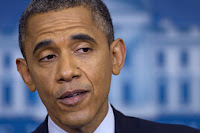Statement of CFJ Executive Director Curt Levey on this
afternoon’s Senate vote on the nomination of Andrew Hurwitz to the U.S.
Court of Appeals for the Ninth Circuit:
Andrew Hurwitz brags that, while clerking for U.S. District
Court Judge Jon Newman, he played a key role in writing the 1972 opinions that provided
the basis for the Supreme Court’s reasoning in Roe v. Wade. Pro-life groups
are understandably opposed to his nomination.
But this confirmation fight is really not about
abortion. CFJ does not oppose Hurwitz’s confirmation
because of the pride he expresses in helping to bring abortion on demand to America. CFJ believes judges are entitled to hold
whatever political opinions they chose, as long as their opinions do not get in
the way of their objective interpretation and application of the law while
serving on the bench.

Similarly, this confirmation fight is not about Hurwitz’s
role in inventing the constitutional right to abortion discovered in
Roe.
That was forty years ago – when judicial activism and the living Constitution
were all the rage – giving Hurwitz plenty of time to mature, reflect on the
error in
Roe, and recognize that judges
shouldn’t invent new rights from whole cloth.
In fact, many prominent liberal legal scholars have done
just that, as liberal University of Pennsylvania Law Professor Kermit Roosevelt
recognized in 2003:
“You will be
hard-pressed to find a constitutional law professor, even among those who
support the idea of constitutional protection for the right to choose, who will
embrace the opinion [in Roe] itself
rather than the result. … This is not surprising. As constitutional argument, Roe is barely coherent. The court pulled
its fundamental right to choose more or less from the constitutional ether.”
The very same year that Roosevelt acknowledged Roe’s incoherence, 2003, Andrew Hurwitz
wrote a law review article paying homage to Judge Newman’s and his own
contribution to the legal reasoning in Roe. At his recent Senate confirmation hearing, Hurwitz
declined to walk back his celebration of Roe,
despite being given several opportunities to do so.
And that’s the real problem with Andrew Hurwitz nomination. It
is not that Hurwitz favors abortion on demand or that he got caught up in the judicial
activism of the 1960’s and 1970’s. It’s
that, in the forty years since Roe,
he doesn’t seem to have learned anything about interpreting the Constitution in
an intellectually honest fashion.
Instead, long after liberal scholars stopped defending
Roe’s reasoning, long after “judicial
activism” became a bad word
[see
Curt Levey’s “Living Constitution, RIP,” National
Review Online 9/30/05], and even after Obama Supreme Court nominees
Sonia Sotomayor and Elena Kagan promised the Senate Judiciary Committee that
they would do nothing more than strictly interpret the Constitution, Hurwitz
goes on celebrating his role in one of the most activist Supreme Court decisions
of all time.
Hurwitz never got the message that it’s no longer legally or
publicly acceptable for judges to make stuff up and that pulling new rights from
the constitutional ether is something judges deny, not brag about.
Since Hurwitz is still proud of inventing abortion rights
from whole cloth, we can be sure he’ll continue to pull things from the
constitutional ether if promoted from the Arizona Supreme Court to the Ninth
Circuit. Only then, the victims of his judicial
activism won’t be limited to Arizona.
They will also include the residents of California, Montana, Alaska, Nevada,
Idaho, Washington, Oregon, Guam and the Northern Mariana Islands – all part of
the Ninth Circuit.
If Senate Majority Leader Harry Reid gets 60 votes when he tries
to invoke cloture on Andrew Hurwitz’s nomination this afternoon, Hurwitz will
get a lifetime seat on the Ninth Circuit. Don’t let that happen. Immediately contact key
senators (see list below) and tell them to vote no on cloture. Do not settle for a vote against confirmation rather than cloture.
Call (202) 224-3121 to get connected with the Senate office of your
choice.
Remind senators that, while voting against cloture on a
judicial nominee should not be taken lightly, it is justified here because Hurwitz’s
openly activist approach to judging satisfies the Gang of Fourteen’s
“extraordinary circumstances” standard. Only
a few of President Obama’s judicial nominees have met the high threshold of
“extraordinary circumstances” and, accordingly, the Committee for Justice has
opposed only a handful of Obama nominees. But Hurwitz clearly meets the threshold.
Most Republican senators can be counted on to vote against
cloture today, but a dozen or so could use a reminder. They include Jon Kyl (AZ), Lamar Alexander
(TN), Scott Brown (MA), Saxby Chambliss (GA), Susan Collins (ME), Lindsey Graham (SC), Richard Lugar (IN), John McCain (AZ), Lisa Murkowski
(AK), Olympia Snowe (ME), and John Thune (SD). In addition, Montana
Democrat Jon Tester needs to be reminded that Montana is part of the Ninth
Circuit.
 Romney's view of the Affordable Care Act remains unchanged, and his criticism on President Obama will continue as Romney declared the Supreme Court’s ruling on health care to be a violation of personal freedom and is bad for the economy. To the Romney Campaign the ruling on health care, which was upheld as a tax, has made the decision an easy target for Republicans who traditionally oppose tax increases. Gov. Mitt Romney on Thursday responded to the health care ruling saying:
Romney's view of the Affordable Care Act remains unchanged, and his criticism on President Obama will continue as Romney declared the Supreme Court’s ruling on health care to be a violation of personal freedom and is bad for the economy. To the Romney Campaign the ruling on health care, which was upheld as a tax, has made the decision an easy target for Republicans who traditionally oppose tax increases. Gov. Mitt Romney on Thursday responded to the health care ruling saying:



































